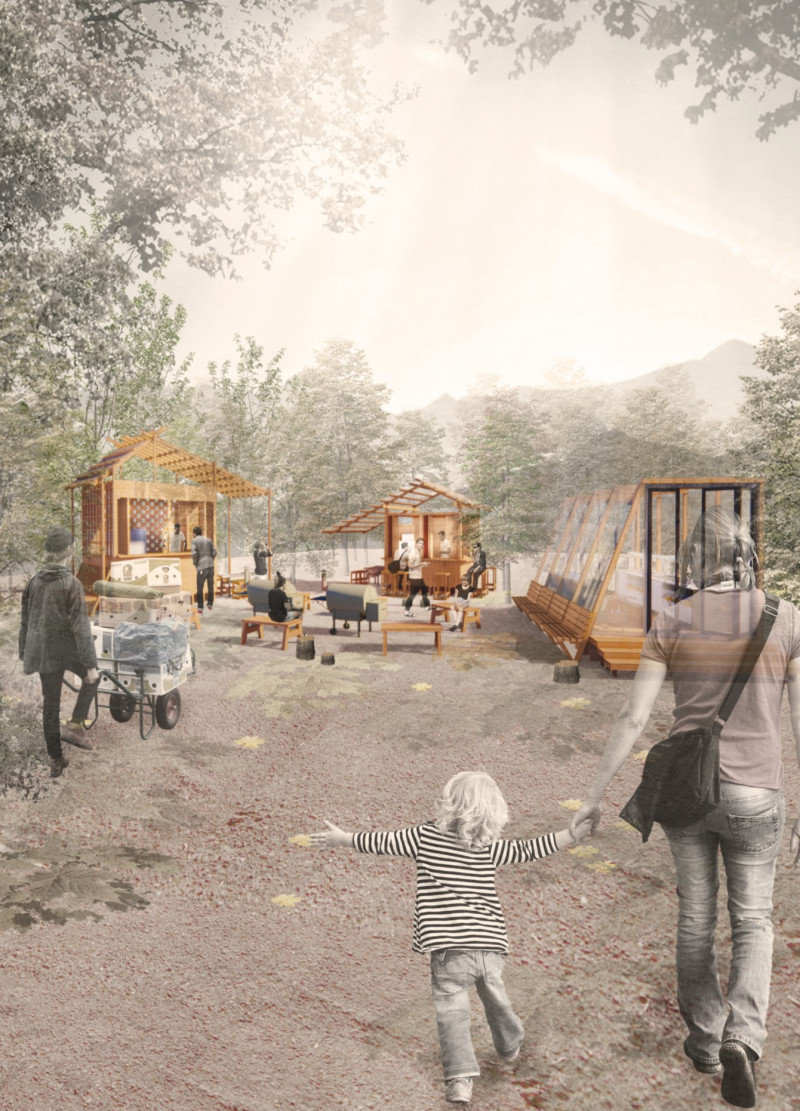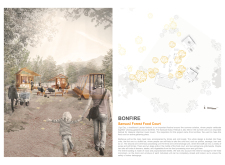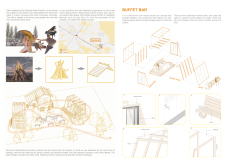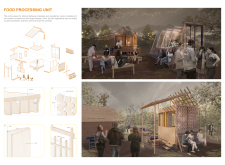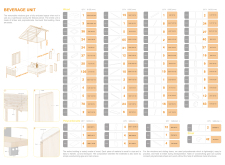5 key facts about this project
The Sansusi Forest Food Court is located in a peaceful forest and serves as a lively meeting spot inspired by Latvian cultural traditions. The design draws on the spirit of Līgo Day, a festival that celebrates the summer solstice, as well as the Sansusī Music Festival. It aims to create a space where visitors can come together, enjoy food, and appreciate music in a communal environment.
Buffet Bar
One feature of the food court is the Buffet Bar that allows people to serve themselves. Here, visitors can select from a variety of cold food items such as cheeses, nuts, pickles, and sausages. This setup is designed for easy access, encouraging a relaxed atmosphere where patrons can enjoy their meals with friends and family.
Food Processing Unit
Next to the Buffet Bar is the Food Processing Unit, which is intended for preparing barbecue ingredients. This area includes two kitchen counters and sufficient storage space. The layout is practical, enabling staff to efficiently prepare food for grilling and ensuring that everything runs smoothly during busy periods.
Beverage Unit
The Beverage Unit adds to the overall experience by allowing staff to create a range of juices and soft drinks. With removable windows, this unit offers flexibility for use during festivals and busy events. The design accommodates varying needs throughout the different seasons, making it a versatile space.
Materiality and Aesthetic
The food court features a clear structure with the use of wood and polycarbonate sheets. Wood gives a warm and natural feel that fits well with the forest setting. The use of polycarbonate for some elements allows for light and visibility, connecting the indoor environment with nature outside. This choice of materials is practical and enhances the overall visual appeal.
A key element of the design is the presence of two large grills, along with two self-service grills for visitors. This setup focuses on the communal experience of cooking together. Visitors can take part in preparing their meals, fostering interaction and a sense of community among attendees.


